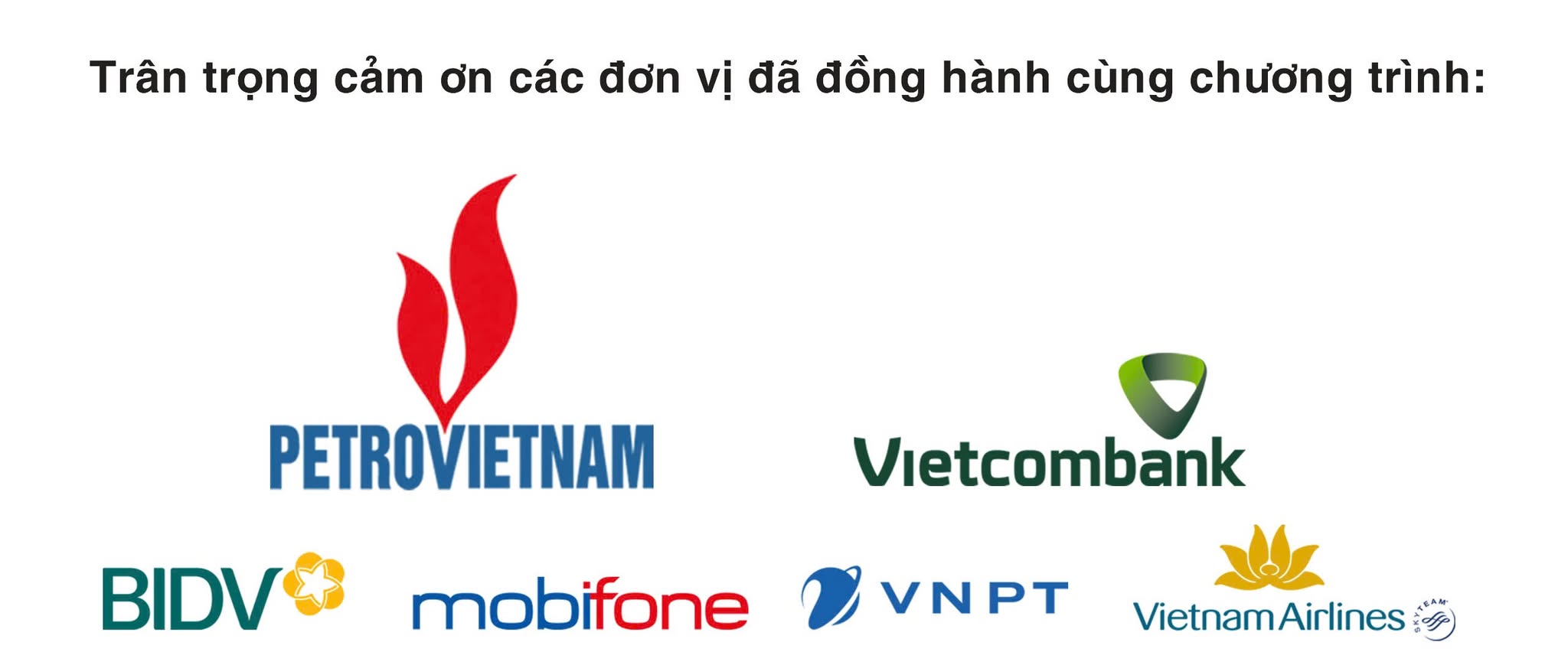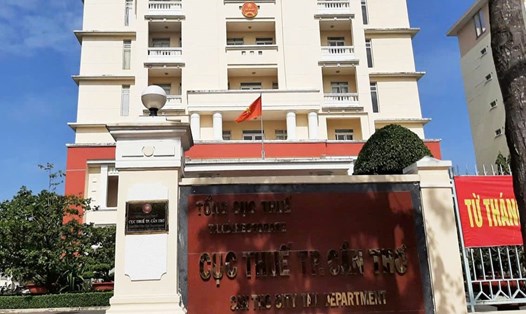
I. Reality of tax management for e-commerce activities before implementing Tax Administration Law No. 38/2019/QH14
Vietnam is an open economy with a rapid development in the fields of manufacturing, trade and services. In particular, e-commerce, service provision and business on digital platforms are developing strongly. According to the assessment of the Ministry of Industry and Trade, the scale of Vietnam's digital economy in 2019 was worth 12 billion USD (contributing 5% of the national GDP in 2019), 4 times higher than the value in 2015 and is expected to reach 43 billion USD by 2025, with the following areas: e-commerce, online tourism, online media and technology-based ride-hailing.[1]
Before the issuance of the Tax Administration Law No. 38/2019/QH14 and its guiding documents, tax management for foreign digital service providers such as Google, Facebook, TikTok, etc. was carried out according to the contractor tax mechanism guided in Circular No. 103/2014/TT-BTC, according to which domestic organizations when purchasing services, goods or distributing goods and services from foreign suppliers are responsible for deducting and paying tax obligations on behalf of foreign suppliers. However, due to the nature of e-commerce business activities, business on digital platforms can be carried out entirely through the internet directly to end consumers. The contractor tax mechanism revealed some weaknesses when it did not cover all state budget revenue sources when foreign entities provided services directly to individual users in Vietnam.
According to statistics from the General Department of Taxation, foreign contractor tax revenue from cross-border digital service providers in 2019, 2020, and 2021 reached VND 1,168 billion, VND 1,144 billion, and VND 1,591 billion, respectively.
II. Solutions to improve tax management efficiency for e-commerce activities in general and cross-border e-commerce activities in particular
1. Perfecting the legal basis
In order to have a legal basis for tax management of foreign suppliers without permanent establishments in Vietnam, the General Department of Taxation has proactively reported to the Ministry of Finance to submit to the National Assembly and the Government to issue legal documents as a basis for implementation, specifically:
- Law on Tax Administration No. 38 dated June 13, 2019 (Point 4, Article 42) stipulates: “4. For e-commerce business activities, digital platform-based business and other services performed by foreign suppliers without a permanent establishment in Vietnam, foreign suppliers are obliged to directly or authorize tax registration, tax declaration and tax payment in Vietnam according to regulations of the Minister of Finance.”
The provisions of the Law on Tax Administration mentioned above are the basis for the General Department of Taxation to proactively fight and synchronously apply many solutions to manage taxes for cross-border e-commerce activities, while also overcoming the weakness of the contractor tax mechanism when foreign suppliers are responsible for declaring and paying taxes directly on all revenue, including revenue from sales of goods and services to individuals.
2. Applying technology to tax management activities.
Based on the practice and legal basis of the above Law on Tax Administration, the General Department of Taxation has grasped the business model and applied technology to build and officially put into operation the Electronic Information Portal for NCCNN from March 21, 2022. Through the Electronic Information Portal, NCCNN can access from anywhere in the world to perform tax registration, adjust tax registration information, declare, submit declarations, adjust declaration information, support file lookup, look up payment status and pay taxes to the State Budget of Vietnam.
The launch of the electronic portal has created favorable conditions for foreign suppliers to proactively exercise their rights to register, declare, and pay taxes directly, thereby saving costs and time, reducing administrative procedures, and improving business efficiency in the digital economy era.
3. Apply new tax management measures
- Propaganda and support solutions: The business activities of foreign-invested enterprises are characterized by being conducted outside Vietnam. Therefore, communication work is identified as the most important solution to help taxpayers understand and grasp Vietnam's legal regulations. Tax authorities have proactively contacted, propagated, and promptly answered questions of foreign-invested enterprises; carried out communication campaigns in the press, issued detailed guidance documents on tax registration, tax declaration, and tax payment on the electronic portal; and transmitted information through embassies, foreign business associations in Vietnam and large international tax consulting units.
- Database building solution: E-commerce business activities and cross-border transactions are characterized by being carried out entirely through cyberspace through the platforms of foreign-invested enterprises without permanent establishments in Vietnam. Building data and data-based management is one of the effective ways to manage taxes for foreign-invested enterprises. Information data collected from foreign-invested enterprises; payment data exploited from commercial banks; data in the centralized tax management system of tax authorities; data from intermediary transport units and payment intermediaries are the basis for identifying types of e-commerce business and business based on digital platforms. From there, implement appropriate tax management measures.
- Group of solutions on tax management operations: Based on the results of analyzing big data collected from many different sources, the tax authority has synchronously applied operations in tax management to request NCCNN to provide information, monitor and urge the implementation of tax obligations in accordance with legal regulations with the spirit of collecting correctly, fully and promptly. This has brought about clear results in tax management since the beginning of the implementation of the NCCNN e-Portal up to now.
4. Results achieved
The results achieved after more than 02 years of synchronous implementation of solutions and operation of the Information Portal for NCCNN are as follows:
- The total number of NCCNNs that have registered, declared and paid taxes via the Portal since its launch (March 21, 2022) is 116 NCCNNs. The above NCCNNs come from many countries around the world.
- Since the time of implementing the operation of the National Information Portal for State Employees, the total state budget revenue from State Employees is 20,261 billion VND, of which:
+ Revenue in 2022 is 3,478 billion VND (including 1,850 billion VND declared and paid directly via the electronic tax portal and 1,628 billion VND deducted and paid by Vietnamese parties);
+ Revenue in 2023 is VND 8,096 billion (including VND 6,896 billion declared and paid directly via the Electronic Information Portal and VND 1,200 billion deducted and paid by Vietnamese parties).
+ The amount of direct payment to the State budget through the Electronic Information Portal for NCCNN after more than 10 months of 2024 reached 8,687 billion VND.
III. Difficulties and obstacles in the implementation process:
However, in practice, tax authorities are encountering some difficulties as follows:
- Tax policy problems: Cross-border e-commerce business activities are new in Vietnam and the world, so the Vietnamese legal document system in state management of this business activity still has some regulations that are not suitable for this activity such as invoices of foreign contractors, regulations on permanent establishments of foreign contractors...
In addition, some cross-border business activities in Vietnam such as e-commerce platform business, cross-border advertising business... are business activities that must be licensed and managed by ministries and branches such as the Ministry of Industry and Trade, the Ministry of Information and Communications. However, there are currently no regulations on business licensing by state management agencies and tax code issuance by tax authorities.
- Regarding database construction: The connection to build a database between related units and the General Department of Taxation is still difficult because: data of related units (Ministries, branches, commercial banks...) is not yet in a unified format, the exploitation method is still heavily manual and not automated. This leads to difficulties in analyzing and using data for tax management. Some NCCNN have not coordinated to provide information due to confidentiality reasons signed with users.
- Regarding inspection and examination work: Due to the characteristics of foreign-invested enterprises not having permanent establishments in Vietnam, the implementation of inspection and examination activities on the compliance level of foreign-invested enterprises faces many difficulties because the taxpayer's headquarters are abroad in the direct inspection and examination of foreign-invested enterprises.
IV. Continued implementation of solutions to ensure effective tax management for e-commerce activities and cross-border transactions.
With the scale of cross-border e-commerce valued at tens of billions of USD and Vietnam being assessed as one of the top 10 countries with the fastest e-commerce growth rate in the world, in addition to the tax management solutions currently being implemented, in 2025, the General Department of Taxation will focus on implementing the following tasks and solutions:
- Regarding policy: In 2025 and the following years, continue to systematize theoretical and practical issues, international experience in tax management for e-commerce, thereby advising and proposing solutions to strengthen tax management for e-commerce activities in Vietnam.
- Continue to innovate management methods in line with the spirit of innovation and creativity in the digital transformation era: Build a Big data database from banks, e-wallets, online payment service providers, international payment organizations, coordinate with the Department of Information Technology to apply technology to identify payments of cross-border e-commerce activities, thereby serving as a basis for cross-checking taxpayers' declaration data, ensuring correct and sufficient collection to the State budget; at the same time, identify taxpayers who have generated revenue in Vietnam but have not registered for tax to put them under tax management.
- Continue to analyze the database of NCCNN declaring and paying taxes via the Electronic Information Portal for NCCNN and combine data from competent state agencies to develop plans and organize key inspections of NCCNN and related declaration deduction organizations.
- Continue to coordinate with media units and press agencies to propagate new policies, develop propaganda programs for foreign investors to promptly grasp, understand and comply with tax laws in Vietnam.
[1] Source: https://mof.gov.vn/webcenter/portal/vclvcstc/pages_r/l/chi-tiet-tin?dDocName=MOFUCM171453












